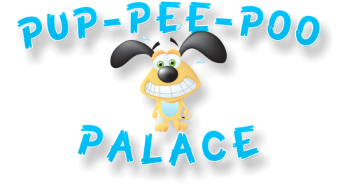FAQ
Training
Puppy Training
Our new puppy starts crying as soon as we put her in the palace, what should we do?
The first thing to understand is that your puppy has probably never been alone before so his anxiety about that is expressed as barking. Usually that will improve noticeably in less than a week if you approach it correctly. Any time you go back to his area while he is barking you are encouraging that behavior. You have to ignore the barking and not go back until he has been quiet for at least 30 minutes or after he wakes up. Other steps you can take that may help is using a covered cage (it will still take several days to adapt), having the cage in an area where he does not see or hear you and using interactive chew toys such as Starmark Everlasting Treat, Kong Quest or Traxx, Nylabone Romp n Chomp or processed bones or antlers (Blue Buffalo). Having music or a ticking clock can also help. The most reliable solution is a second puppy but if that is not feasible try these other suggestions.
How do we get our new puppy used to the palace?
Great question! For the first week or two the puppy should be in his crate, door closed if he is not actively engaged with your family. After this initial period you can go to using a small room (bathroom) or an attached play pen with the door left open. Many people try to go from the confined space of the cage to free run of the house and usually get frustrated with the accidents. Your puppy has to learn what you expect and how to comply. As he approaches 12-14 weeks of age and control over elimination is improving then free run of the house can work. If you are to have him away from the crate you can also take the pad and tray with you.
If he does not calm down in the crate at all for a long period of time will this cause any problems?
As long as he feels good otherwise and is eating well there is no problem with letting him "wear himself out" This is a tough situation for you and many families with new puppies. Any time that you give in and return to the cage is reinforcing the unwanted behavior, if you stand your ground and do not go back if he is whining or barking and for at least 30 minutes after he stops then you will be successful usually within 3 days. Each time you give in will be adding more days.
I have never had a puppy so what are the keys to potty training?
PRIOR TO 10-12 WEEKS OF AGE WHEN YOUR PUPPYS BLADDER OR RECTUM BECOME FULL THEY EMPTY SPONTANEOUSLY. YOUR PUPPY CANNOT WAIT. HOWEVER, YOU SHOULD NOT WAIT TO LET YOUR PUPPY KNOW WHAT IS EXPECTED, JUST UNDERSTAND THAT COMPLETE CONTROL OF ELIMINATION IS NOT ESTABLISHED UNTIL ABOUT 3 MONTHS OF AGE. THE THREE KEYS TO SUCCESS ARE: 1. CONSISTANCY 2. CREATE THE OPPORTUNITY FOR PRAISE 3. RECOGNIZABLE REPRIMAND
If the puppy wakes up in the night crying in his crate, should we get up and take him out?
He didn't cry the first two nights but last night he did. I took him out, he peed and went back in to sleep. This is really personal choice at this point. At his age he would still eliminate during the night most of the time, if it is convenient to take him out then you are reinforcing outdoor potty training which is good. If it is not convenient then he can use his pad.
Is the Palace still useful if I want to train my puppy to potty outdoors?
Yes, the Palace gives your puppy access to sleep, play and elimination areas while you are away or asleep. You can still train him to go outdoors by taking him out as often as is feasible with your schedule. . The quickest way to train a puppy to go outdoors is to leave him out or at least have him outside a lot. For many people utilizing a combination of crate training while you are away and having the puppy outside as much as possible when you are home is necessary and will still achieve the goal.
Does the PupPeePooPalace work well for older dogs that are not quite potty trained?
The problem with older dogs that are not fully potty trained is related to their training routine or lack of routine. Adding the Palace to this situation without addressing the consistency and predictability of the approach will most often be disappointing.
